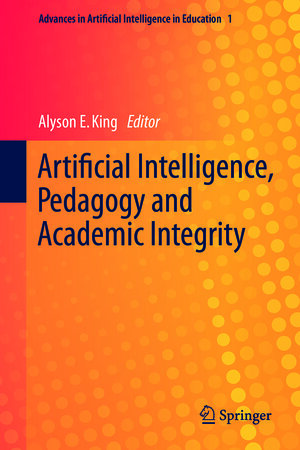
Artificial Intelligence, Pedagogy and Academic Integrity
herausgegeben von Alyson E. KingThis book addresses the implications of artificial intelligence for teaching, learning and academic integrity in higher education. It explores policies about the use of Generative Artificial Intelligence (GenAI), describes how to teach writing in the era of GenAI, and how instructors can design courses and assessments that prevent plagiarism while building the necessary skills for critical thinking and writing. Together, the chapters include research results, case studies, teaching methodologies, course design ideas, analysis of power and gatekeeping, and best practices related to GAI from a diverse range of researchers from English and French Canada, the United States, England, Ukraine and Croatia. The authors approach the advent and rapid spread of GenAI in higher education by examining its use from different perspectives with a particular focus on its impact on academic integrity. Taking a communication studies approach, consideration is given to the role GenAI might play disrupting power structures in universities to improve access for students who are non-traditional or English Language Learners. The book also explores how reimagining teaching methodologies can help to mitigate academic integrity violations due to misuse of GenAI and to teach students to use GenAI with integrity as a research and brainstorming tool. Students need to learn how to assess the reliability of GenAI’s output as the develop the skills for research and writing. Methods of teaching writing and research skills using GenAI are explored in an effort to ensure that critical thinking skills are developed successfully. Most instructors who use writing-intensive assessments believe that essential critical thinking skills are developed via the writing process; often, ideas become concrete as one writes about them. Teaching with GenAI can provide opportunities for instructors to guide their students into a deeper analysis and critique of their research.



